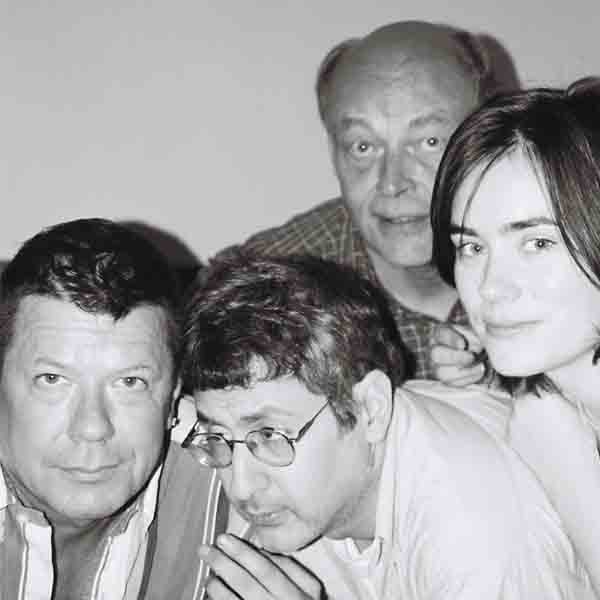Fringe Shorts: “The Princeton Seventh”
Jakki Spicer was intrigued by this meditation on fame, identity, and writing; one chance left to see it, Friday at 2 at the Bryant Lake Bowl.

”The Princeton Seventh”, written and directed by James Vculek, produced
by Partizan Productions, at Bryant Lake Bowl. Friday, August 12, 2 pm.
The Princeton Seventh, the eponymous character in James Vculek’s new play, is the extra. That is, he’s the addendum to the famous (and fictional) “Princeton Six,” six students of a one-time seminar given by the illustrious Max Lonoff, all six of which went on to achieve fame and fortune, becoming the most important writers of their day. But not so the Seventh. And so, in a sense, is the play a contemplation of success and failure, of attempts to reap from the successful what small crumbs of their talent and luck the less fortunate might glean.
The Princeton Seventh, however, is more about writing than writers, although its main characters are all writers of different ilk and success, circling around each other like egomaniacal hawks and sycophantic vultures. The entire two-act play takes place in a hotel bar—that of the Toledo Westin—while awaiting a tribute for a recently deceased poet. We are first introduced to two unaffiliated characters sitting at the bar: Jack Cutler (Alex Cole), a brash, swashbuckling best-seller writer; and an unassuming “Man in Bar”—also the aforementioned Seventh—(Ari Hoptman), who seems to have an uncanny knowledge for the drinks of choice of famous writers, and who is not afraid to regale the profoundly uninterested Cutler with said knowledge.
The two characters enter into a reluctant—on Cutler’s part—and often very funny conversation about writing and writers and the dead poet, for whom Cutler, never having met the man nor read his works, is to give tribute. Cutler treats Hoptman’s character with bullying distain, which deters Hoptman not at all; he even manages a few understated zingers himself. Eventually, they are joined by Max Lonoff (James Cada), a Nobel prize winning author who is also to give tribute to the dead poet—and is, incidentally, Hoptman’s former professor—as well as Lonoff’s wife (Catherine Johnson). Various micro-dramas ensue as histories are recounted and relived.
As these stories are revealed, the characters adjust their behaviors according to the perceived fame of the others, becoming more or less obsequious in direct relation to the apparent rise and fall of the others’ power and prestige. The acting is perfectly competent—particularly Hoptman—although Johnson is surprisingly disappointing, incoherently overacting for much of the first act. The set is appropriately sparse, leaving the audience’s attention focused on the characters themselves, and the gradual unraveling of their stories.
The second act, however, is the same as the first. Or not. In an interesting twist—which I’ll attempt to refrain from spoiling here—Vculek turns our attention away from the specificities of the stories played out in the first act and redirects it toward questions of writing, of what it is to write, of what revenge one might enact or honor one might bestow through the act of writing and rewriting, through new worlds produced through scripting life with one’s own pen. And, perhaps most importantly, what new self one can create through the act of putting pen to page. For this meditation—not to mention some very funny scripting—the play is certainly worth seeing.